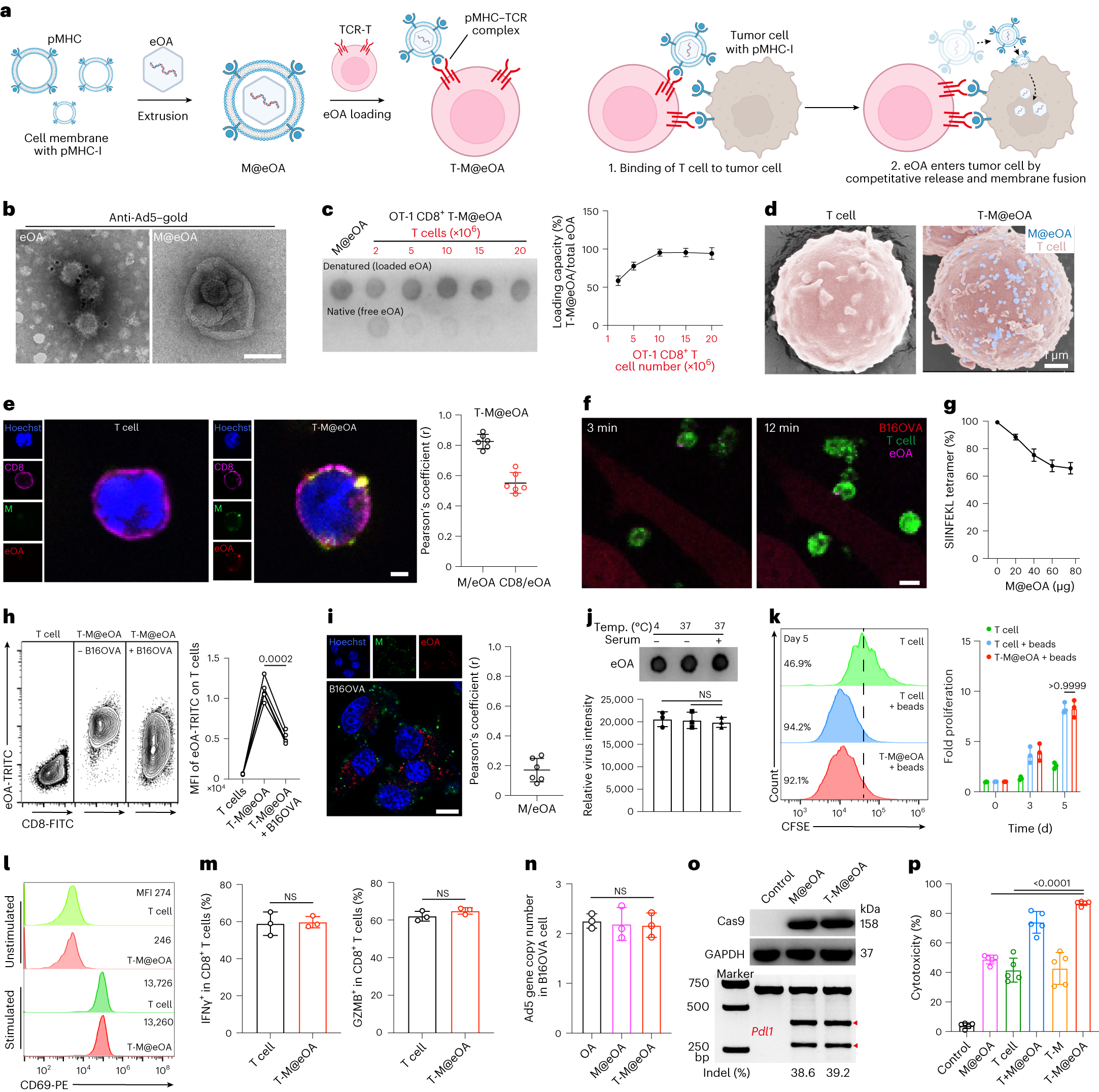In a new study, researchers from Zhejiang University, the Chinese Academy of Sciences, and Xiamen University have developed a novel approach to combat cancerous tumors. The method, named ONCOTECH, combines oncolytic virus therapy with adoptive T-cell therapy for the treatment of cancer patients. The related research findings were published online on February 9, 2024, in the journal Nature Biotechnology under the title “An oncolytic virus–T cell chimera for cancer immunotherapy”.

Oncolytic virus therapy involves the use of one or more viruses to selectively infect and kill tumor cells while stimulating the immune system to attack the same tumor. Adoptive T-cell therapy is an anticancer technique involving the use of genetically modified T-cells to identify and attack tumor cells.
In this new study, the authors developed a treatment method that combines these two techniques. It is called ONCOTECH, which physically attaches oncolytic viruses—specifically oncolytic adenovirus—to the surface of T-cells using an engineered biomembrane with T-cell-specific antigens. It also involves encoding the CRISPR-Cas9 system to target the PD-L1 gene, which is often overexpressed by tumor cells to evade immune system attacks.
The therapy using ONCOTECH involves delivering oncolytic adenovirus to the tumor site where they are released and internalized by tumor cells. The oncolytic adenovirus destroys the PD-L1 gene and initiates tumor lysis, while T-cells trigger cytotoxic effects and produce cytokines. Together, they enhance the anti-tumor immune response and improve treatment outcomes by reducing tumor volume.
The authors tested the ONCOTECH method using various cancer mouse models, including melanoma, lung cancer, pancreatic cancer, and glioblastoma. They found that inhibiting tumor growth with ONCOTECH was more effective than using oncolytic adenovirus or T-cells alone or physically mixing them and extended the survival time of the mice tested. They also confirmed the feasibility of using the ONCOTECH method in a humanized pancreatic cancer PDX model, which utilized patient-derived organoids as well as CAR-T cells.
Creative Biolabs has long devoted to the development and application of oncolytic virotherapy for combination adoptive T cell therapy. We are able to develop specific oncolytic viruses to combine with different types of adoptive T cell therapy to meet your research demands both in vitro and in vivo. Please feel free to contact us for more details and we are pleased to offer you the best services.
Reference
1. Chen, Yuxuan, et al. “An oncolytic virus–T cell chimera for cancer immunotherapy.” Nature Biotechnology (2024): 1-12.
